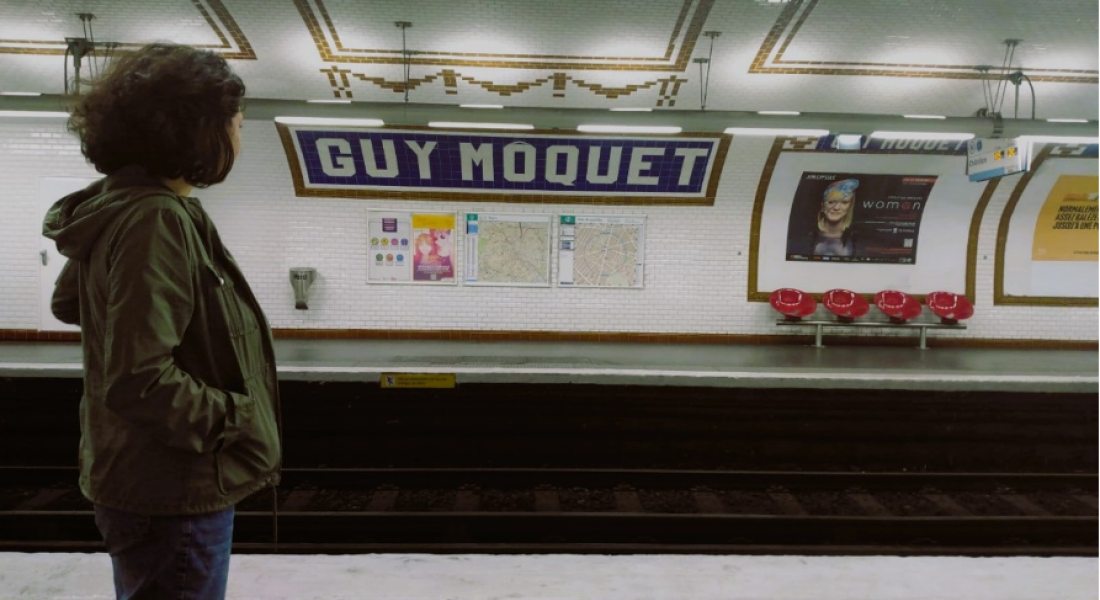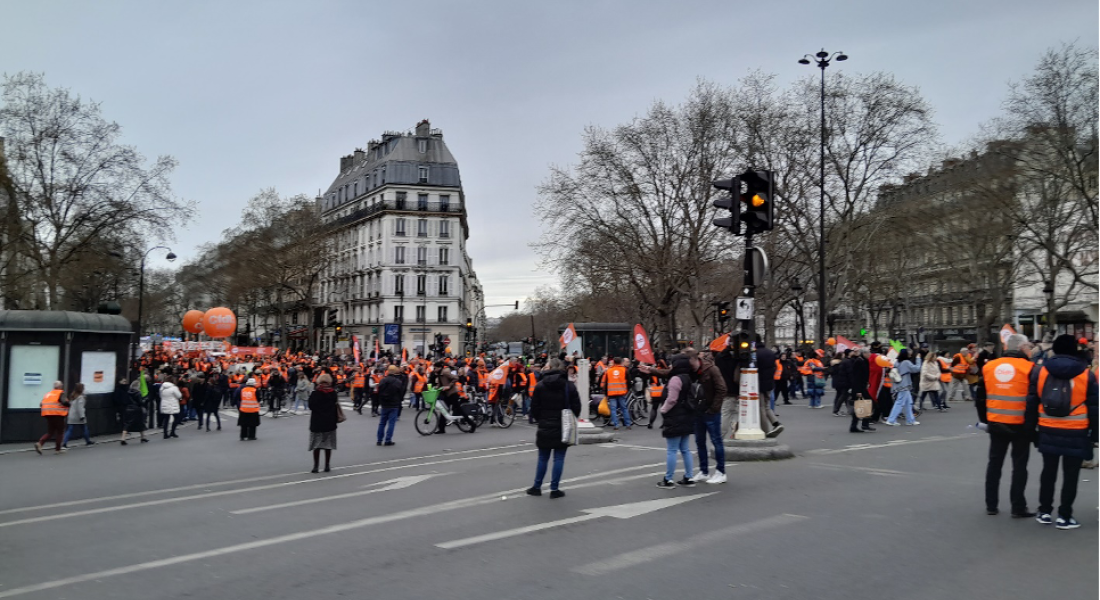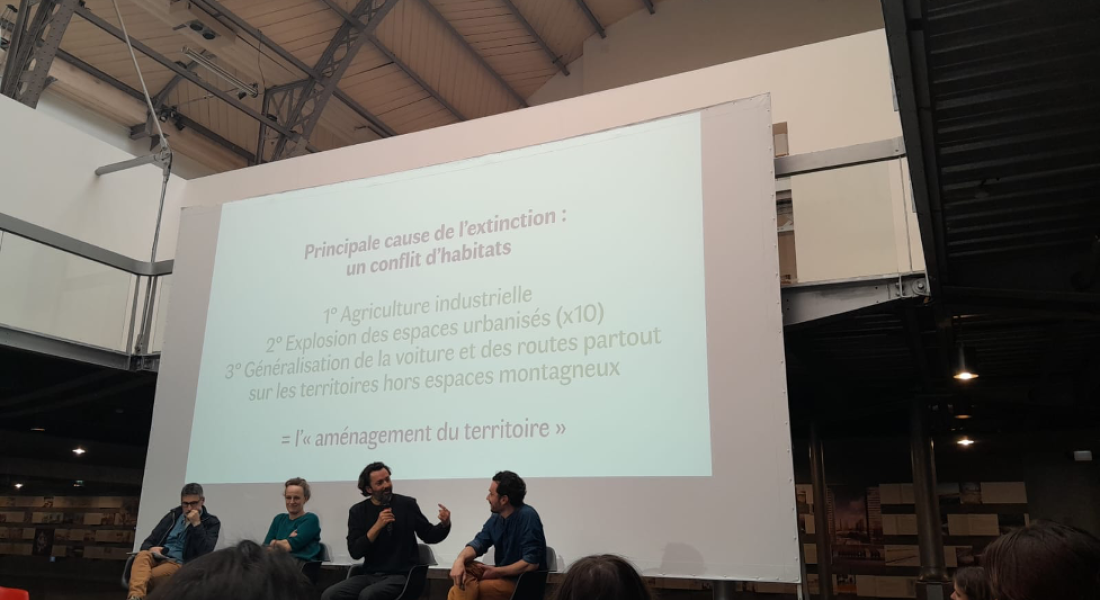From January 2023 through August 2023, Kellogg Doctoral Affiliate Zaira Ruiz (romance languages - Spanish) traveled to the Paris, France, on a Kellogg Institute Graduate Research Grant to conduct research for her project, “Exclusion, Displacement, and Emancipation in the Writing of Cristina Peri Rossi and Annie Ernaux” Upon her return, she sent the following summary of her work.
In Paris I learned to identify writing as a voyage into the inner world; a way to decipher our life, its oppressions, but also the possibilities of emancipation. Thanks to the Kellogg Institute Graduate Research Grant, I did a research stay at the Laboratoire D'Etudes Romanes of the Université Paris 8, which allowed me to improve my dissertation proposal and advance in writing chapters.
Although my stay coincided with the social protest movement in Paris, thanks to the support of Professor Enrique Fernández Domínguez, who is director of Département d'Etudes hispaniques et hispanoaméricaines, I had the opportunity to present my research project with other doctoral students. I also met with Professor Diego Vecchio, director of Création critique, a novel initiative of the Université Paris 8, which articulates research in literature with new research poetics. I also attended the "Les Journées de l'Autobiographie" organized by the Association pour l'autobiographie et le patrimoine autobiographique (APA). Thanks to these exchanges and to the archival work I did at the Grand Équipement Documentaire (GED) and at the Bibliothèque Interuniversitaire de la Sorbonne, I realized that I had to correct my project because, in terms of sociocriticism, création critique, autobiography, the comparison between Cristina Peri Rossi and Annie Ernaux would be a bit problematic. I decided to focus only on Annie Ernaux, and I was able to identify a very interesting line of research.
In this sense, living in France allowed me to personally experience the questioning of identity and the sense of belonging to a country, in my case, Mexico. On the other hand, my stay coincided with a series of protests in France over pension reform, which motivated me to focus my research on political engagement through writing, since Annie Ernaux has adopted a certain voice in the struggles against exclusion based on race, class and gender, and certain groups in France find in Ernaux an ally in the struggle. This gave me clarity to make the necessary adjustments to my research project to compare Annie Ernaux's narrative with narratives by Mexican authors, Julián Herbert, and Cristina Rivera Garza, who also experienced social ascent and who have represented the environment of poverty, exclusion, and domination of their origins, but from a country with different characteristics than France in terms of democracy and human development.
Wonderful encounters contributed to a novel approach to my research. I had a meeting with Jules Falquet, who is a professor of philosophy at the Université Paris 8 and whose work allowed me to advance in the topic of social relations of sex, class and race, and social movements. I met Cécile Quintana, who is a professor of Latin American literature at the Université de Poitiers, as well as a specialist in contemporary Mexican literature. Quintana has studied northern or border literature, including Julián Herbert and Cristina Rivera Garza, in fact, Quintana wrote one of the most important books specializing in Rivera Garza, which was crucial to reinforce my arguments. I was also invited to attend the conference "Comment se former à la ville écologique demain ?", an important meeting held in Paris on April 12. Fortunately, I was able to talk with the speakers after the event, which allowed me to consider that, by comparing the narrative of Annie Ernaux with the narrative of Cristina Rivera Garza, I could enter a new area of creation, a product of the intellectual renewal induced by the ecological crisis, which today is at the heart of our daily life, of our societies and of the humanities. Finally, I had the opportunity to establish contact with Annie Ernaux, and she liked my project, we considered meeting for an interview later since she is taking a break. However, the trip I made to Cergy, the city where Ernaux lives and which is represented in several of her books, was very important, and I was able to count on the guidance of Paul-Hervé Lavessière, geographer and urban planner, and specialist in the periphery of Paris, which allowed me to better understand why Ernaux has written so much about this space and social inequality.
Thanks to these great encounters I made the necessary adjustments to my research and am making progress in writing my chapters. In addition, I am preparing an article for publication and a conference that I will present next month at the Institute of Social Research of the National Autonomous University of Mexico.
I am grateful to have had the opportunity to carry out this stay in Paris because this period of work in France was fundamental to my research process. I am happy to finish my interesting comparative study on the French writer Annie Ernaux and two Mexican writers, Julián Herbert, and Cristina Rivera Garza, who problematize social determinism and the experience of ascending social mobility. Thanks to the support of the Kellogg Institute, I was able to reach my objectives and obtain more tools to carry out a novel and relevant research in the academic and socio-political context.








